The world is now autistic. I have a huge Meghan Markle framed photo in my hallway. I flick through Facebook for nothing in particular; dogs, cats, heads in fridges, a man who has eaten 34000 big macs. The latest on Harry and Meghan.
It was the old Marxists who maintained that humans, under capitalism, are related according to their commodity value of exchange. That's how industrial capitalism worked. People sold their labour at the market. The old class of workers still exists but it is disintegrating. Now a new Class of largely middle class functionaries live by rent seeking in the usual sectors: the Civil Service, Social Services, the EU, Education etc. and a coterie of state funded white elephants. The rent seeking classes, by maintaining the hegemony of Spectacle, are able to foster a new relationship, which is more encompassing than the previous one. They use celebrities like Meghan as disposable commodities to showcase... The Spectacle. Whilst the previous industrial market left workers to go home at 5pm, the new system is all empowering. Technology, the mobile, the Internet follows the worker home like an errant hound. The circus of spectacle never stops, it is more intrusive.
Not only are the working classes expected to fund the circus through taxation - they must show the correct attitude every time the theatre opens; they must show, like in Havel's essay, 'The Power of the Powerless', the sign in the window - 'Workers of the world Unite!'. The grocer who displays this sign does not believe in socialist brotherhood of nations, but illustrates, for the authorities, the correct attitude. This attitude enables a less repressive surveillance by the regime. Now, in the post liberal epoch, the average joe must do the same, more subtle, but lies in fear of the sack, of excommunication from the group, if he utters dissent. Instead of the sign in the window, there are placed rainbow flags on Facebook, Ukrainian flags on Instagram or whatever is the latest rage. The 'Spectacle'[1], as Havel noted, is that the legal system is similar whether in the former East or the West. It is not about the 'dismantling' of power, but the relational position of power groups. The mannequins in the window are replaced or recycled. Representative democracy in the west gives the spectacle of respectability without any inherent freedoms.
This is why I have the Meghan Markle photo - for when I leave the house, I acknowledge I am entering a 'Panopticon'[2] of gargantuan madness, of autistic relations. Human relations, whilst once a relation of commodity values, is now structured by woke performance and its visibility. Reinforced by technological entropy it elevates idiocy to the echelons of society. For the Spectacle is represented by a cacophony of the ordinary; in Corporates, in Universities; every facet of western society is awash with woke theology - Liberalism being the gnostic antecedent to Christianity. But whereas Christianity saw salvation up in the skies of the sacred; liberalism sees it grounded in the institutions and civil society of the profane.
There have always been chancers devoid of talent; Rasputin devouring the Tsarina, or George III of England who spent most of his rule in a straight jacket. Perhaps Meghan could be placed in a straight jacket; a useful idea - alas it would surely become a fashion symbol for her - illustrative of her constant suffering and abuse. Ivan the Terrible of Russia once gave the head of the Duma to a pack of dogs for dinner. Another possibility for inane rulers yet I doubt the dogs would eat Joe Biden. Yet these were aberrations before the onset of mass culture. The spectacle arose to compensate for the death of God (Nietzsche) and the establishment of nihilism.
The medieval village idiot was the equivalent of today's 'celebrity'; then from the Dark Ages there arose the Renaissance and the Enlightenment and notions of meritocracy. Yet now the circle of being turns back to the dark 'Spectacle' of mass culture and its representation in inanity. Celebrities become the result of Stalin's advice to writers and artists to become the Engineers of Human Souls: hence the woke comedians who are not funny, the music (Coldplay) that is without soul. The television that forces political programming upon us; every drama constructing a black Hamlet in a wheelchair. 'Slave Play' begins in June at the Noel Coward Theatre in London - but only for a black audience. Thank god I will be saved from a black transvestite draped in a Palestinian flag.
Guy Debord likens modern society to a type of Schizophrenia:
'Imprisoned in a flattened universe bounded by the screen of the spectacle that has enthralled him, the spectator knows no one except the 'fictitious speakers' who subject him to a one way monologue about their commodities and the politics of their commodities. The spectacle as a whole serves as his looking glass. What he sees there are dramatisations of illusory escapes from a universal autism'.[3]
Therefore, images such as Meghan are 'distractions' and symptomatic of decay. These representations eventually devour the society they live off. Hence the Spectacle of the modern is used as a debilitating theatre to avoid placing serious or existential questions at thee centre of discourse. Hence Van Der Leyen sees the main problem of European society as 'Populism', even though it is indicative of grass roots democracy. Gender and Race are elevated as pseudo-important to distract the ordinary people of the 'chorus' from facing real issues such as democracy, freedom and purchasing power. This method of commodity representations is extrapolated universally through globalisation.
Technology, like the Cathedral before it, acts as a disseminator of spectacle. AI, a more efficient form of the printing press, enables the celebrity to market the spectacle to the mass audience. Whilst the Medieval village idiot was seen as 'touched by God' (his otherness seen as a type of sacredness); the modern dissenter is labelled as 'the far right'. The problem with totalitarian systems like the one Havel lived under, and modern Britain, is that they seek an all encompassing death of the soul. Yet as Debord notes:
'The Spectacle cannot be understood as a mere visual deception produced by mass-media technologies. It is a world view that has actually been materialised, a view of a world that has become objective'.
This objectified view is the ideology of the elites, and its theatre is performed through Meghan and the Royal Family, through Television, Sports celebrities. The Achilles heel of autistic civilisations is the actualisation of schizophrenia in the adjuncts of the leaders proffering and confusing reality. Hence the schizophrenic response to Covid (quickly commodified) or the war in Ukraine - a Keynesian boost to domestic economies. There is no 'political theology', but a mere grubby assortment of the 'trahison de clercs' of career politicians. The spectacle is therefore a screen for the true relationships between groups. However, like commodities, celebrities are perishable. The cyclical nature of bread and circuses means that the stars are eclipsed by the same madness which forms them. With AI the prospect for further detachment from reality becomes intense.
The history of the world could be seen as a movement from Being (the Ancient Greeks etc.), to Having (organised agriculture/industry, what one possesses). Yet now, with technology, we are descending from having to Appearing. Having is not enough for modern man. He /she (there, I’m a victim myself) must 'appear' to be affluent, to 'seem' to be virtuous, to act out the epitome of middle England. The poor 'appear' to be part of the circus if they are clutching an iPhone or wearing a black North Face jacket. Socialists wearing Barbour etc. Jobs with fancy names (Diversity and Inclusion Officer, Back Office Dogsbody etc.). Consequently, modernism is defined by sight. Cinema, the Spectacle, Advertising is through sight media, whereas the ontology of the ancients was through touch. Things are grasped through the image; people have lost direct touch with being or the commodities they produce. Soon Meghan will be replaced by an AI Meghan - more self absorbed, more victimised, more feminist, more me. Soon we will be all taken over by AI; lifestyles, jobs and then ourselves will be endlessly mutated until the fateful day when one awakes and, like poor Gregor the Salesman, in Kafka's 'Metamorphosis', we resemble a monstrous bug.
www.brianpatrickbolger.com
[1] Debord, G. (1977). Society of the Spectacle. Black and Red.
[2] Panopticon: Bentham's model circular prison from the nineteenth century.
[3] Debord, G. (1977). Society of the Spectacle. Black and Red.
Read also
'Post-Liberalism' – Reflections on the Revolution in Europe
We have now entered the stage of post-Liberalism. The European elections have seen a move to traditionalist parties in most states.
Brian Patrick Bolger
Even the Poets are Killing: Fico and the New Iron Curtain
The Slovak 'Lee Harvey Oswald' was a 71 year old poet. It's what poets do these days. No waltzing around daffodils in the Lake District or smoking Opium a la Coleridge.
Brian Patrick Bolger
The End of Globalisation
There seemed to be an inevitability in the talk of globalisation and the 'end of history' which ushered in the twenty first century.
Brian Patrick Bolger
Charles III and the Coronation: 'Government of Himself'.
It was TS Eliot who remarked that 'When a term has become so universally sanctified as 'democracy' now is, I begin to wonder whether it means anything, in meaning too many things'.



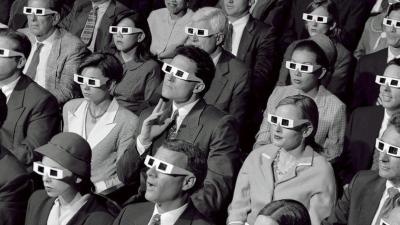

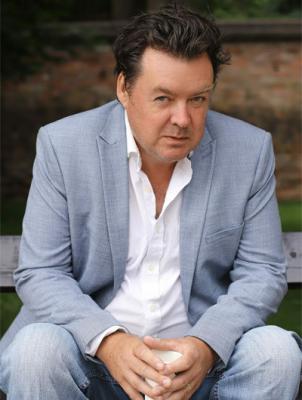
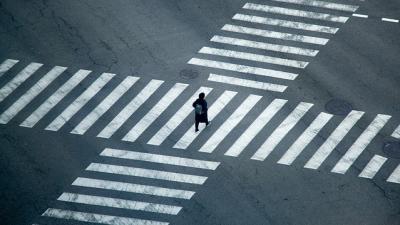

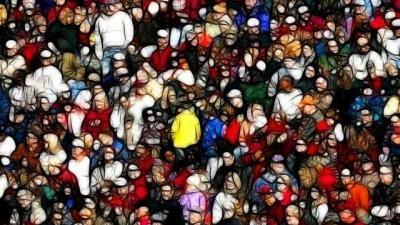

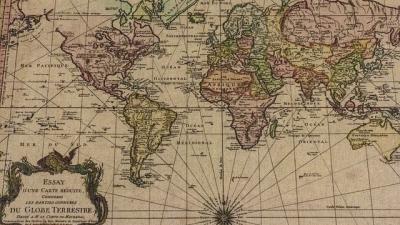

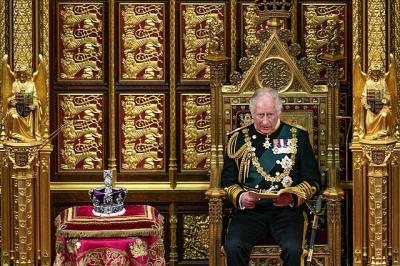

Comments (0)